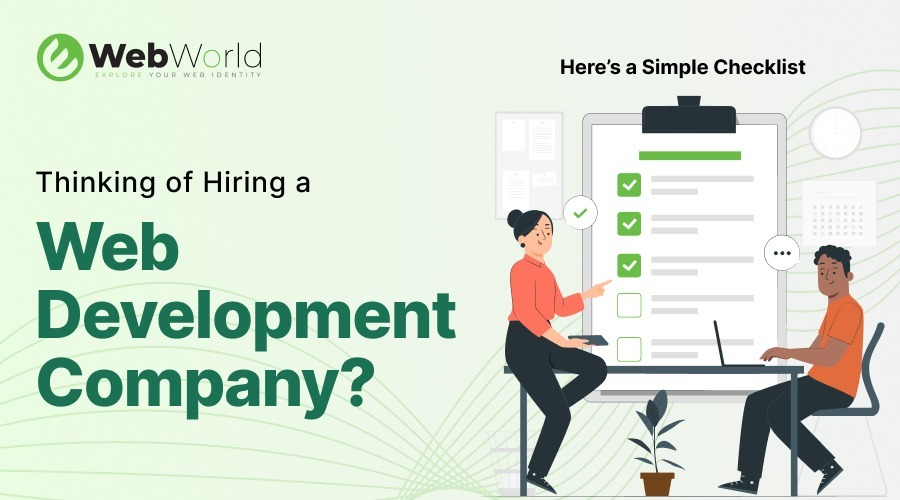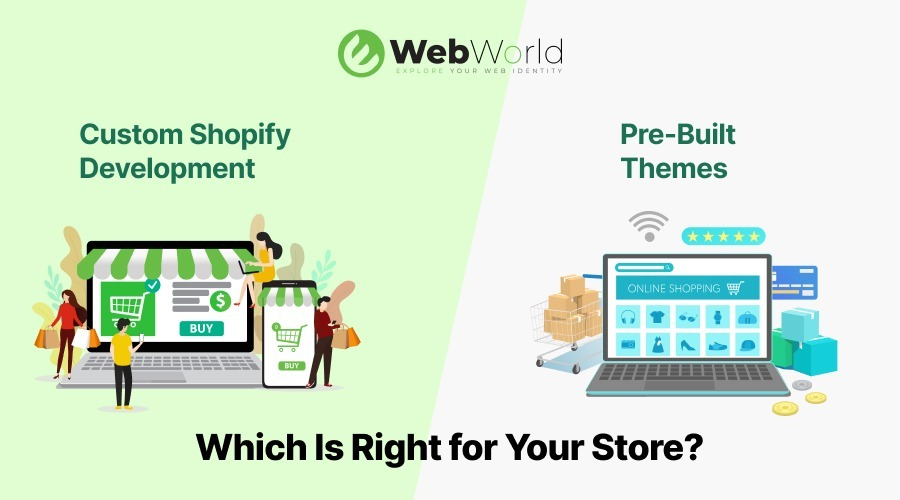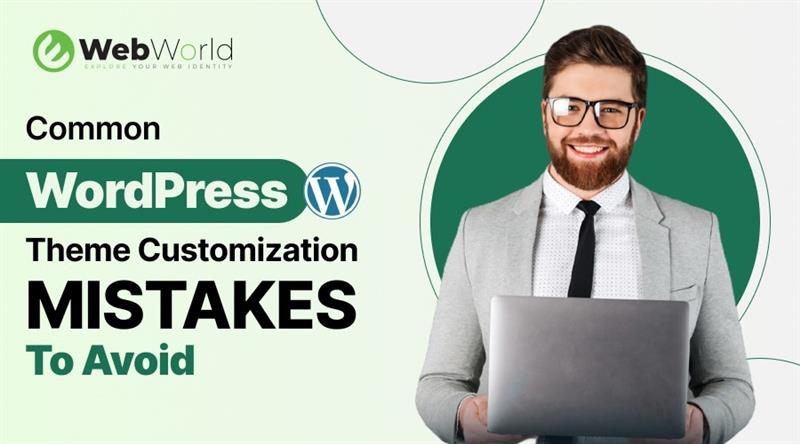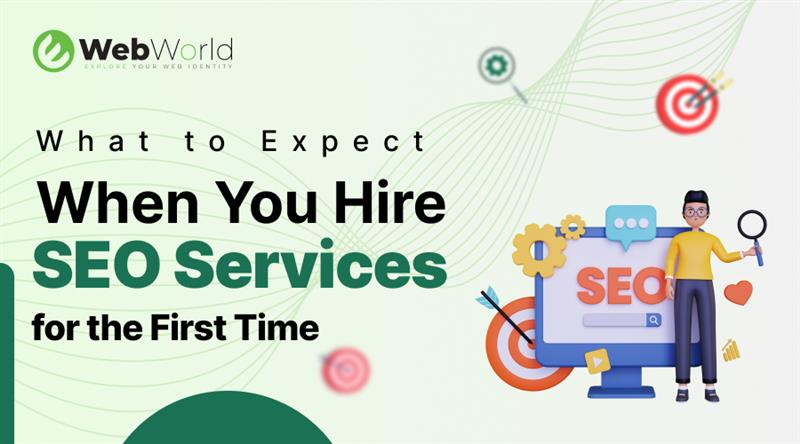DIY vs Custom Website: What’s Right for Your Business?
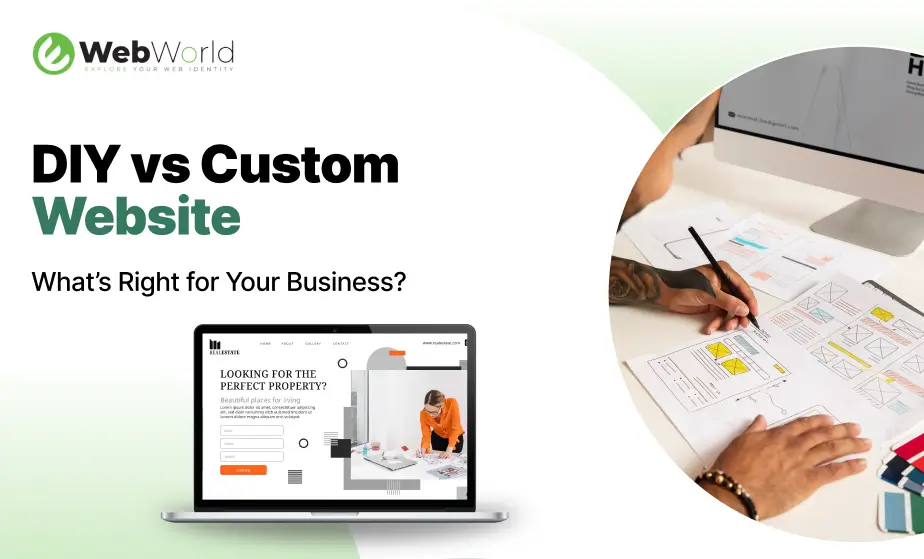
Should I build it myself… or call in the pros? If you’ve ever Googled “how to make a website” at 2 AM with a strong coffee and mild panic, you’re not alone. For many small business owners, startups, and solopreneurs, the website question is one of the first big decisions.
You’ve got two main roads:
- DIY website builders like Wix, Squarespace, or Shopify, quick, affordable, and you’re in charge.
- Custom-built websites are tailored by professionals, scalable, and optimized to grow with your business.
Both have their time and place. But the right choice? It depends on your goals, budget, and how hands-on (or off) you want to be.
In this blog, we’ll break down the pros, cons, and costs of each option, so you can choose what actually works for your business.
What Is a DIY Website?
A DIY website is exactly what it sounds like: you build it yourself using a website builder platform. Think drag-and-drop interfaces, pre-made templates, and zero need to write code.
Popular DIY platforms include:
- Wix – Super intuitive with lots of creative freedom
- Squarespace – Stylish and perfect for visual brands
- Shopify – Great if you’re launching an online store
- WordPress.com – More flexible, but a steeper learning curve
With DIY tools, you can have a site live in a few hours with weekend project vibes. You get access to hosting, design templates, plugins, and sometimes even marketing tools, all bundled together.
So why do people love DIY?
- It’s affordable – Most platforms have free or low-cost plans
- It’s fast – You can launch a basic site in a day
- You’re in control – You don’t need to rely on anyone else
- No coding needed – You don’t have to touch HTML (unless you want to)
But, not everything is sunshine and templates. We’ll talk about the downsides in the next section.
DIY Website: Pros and Cons
DIY website builders are super tempting, low cost, quick setup, and tons of templates. But before you get too excited, here’s a breakdown of what you’re really signing up for.
Pros of DIY Websites
- Budget-friendly – Most DIY platforms cost less than $30/month, which is great when you’re just starting out.
- Speed to launch – You can have a basic site live within hours or a weekend.
- Creative control – Choose your template, colors, fonts, it’s all in your hands.
- All-in-one platforms – Hosting, design, and CMS in one neat package.
- Easy to update – Want to change some copy or add a new photo? You can do it yourself, anytime.
Cons of DIY Websites
- Limited flexibility – You’re boxed into the platform’s capabilities, if you want a custom booking tool or unique layout its going to be very tough
- Template trap – Your site might look like hundreds of others, which is not ideal for standing out.
- Scalability issues – As your business grows, your website might not keep up.
- Hidden costs – Some advanced features, like email marketing or custom domains, come at an extra cost.
- SEO & performance headaches – DIY sites can be bloated with code, which slows things down and hurts search rankings.
Custom Website: Pros and Cons
Going custom means your website is built from scratch around your brand, your goals, and your users. It’s like getting a tailored suit instead of buying off the rack.
Pros of Custom Websites
- Unique design – No basic and previously used templates, your site looks and feels exactly how you want it.
- Built for performance – Developers can optimize every element: speed, SEO, mobile responsiveness, all dialed in.
- Custom features – If you want to add a booking system, quote calculator, product configurator, or anything niche, you can have it.
- Scalability – Add new features, pages, or entire sections as your business grows.
- Stronger branding – Designers and copywriters can work together to communicate your message with clarity and punch.
- Better security – Fewer third-party plugins = fewer vulnerabilities.
Cons of Custom Websites
- Higher upfront cost – Custom websites usually start around $1,500 and can go much higher depending on complexity.
- Longer build time – Expect anywhere from 3–8 weeks, depending on revisions and features.
- Requires collaboration – You’ll need to be involved: sharing content, giving feedback, etc.
- Ongoing maintenance – Someone has to keep things updated and running but that’s usually part of the service.
Check out our detailed guide on Custom Web Development to learn about features, costs, and benefits.
DIY vs Custom Website: Quick Comparison Table
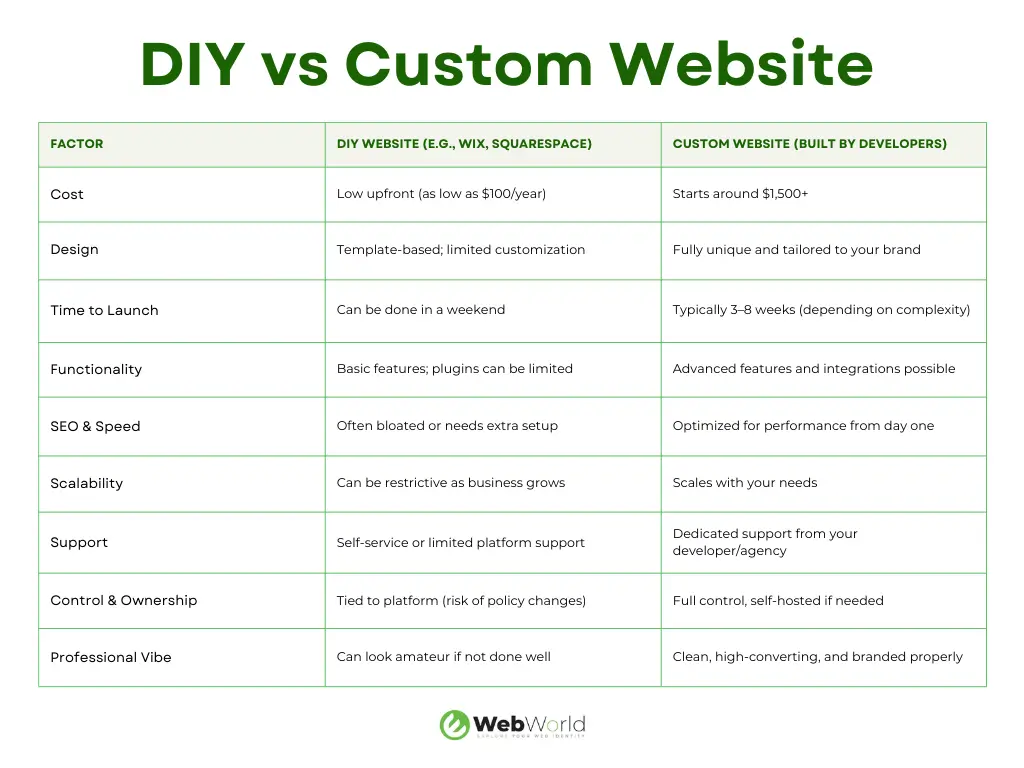
| Factor | DIY Website (e.g., Wix, Squarespace) | Custom Website (Built by Developers) |
|---|---|---|
| Cost | Low upfront (as low as $100/year) | Starts around $1,500+ |
| Design | Template-based; limited customization | Fully unique and tailored to your brand |
| Time to Launch | Can be done in a weekend | Typically 3–8 weeks (depending on complexity) |
| Functionality | Basic features; plugins can be limited | Advanced features and integrations possible |
| SEO & Speed | Often bloated or needs extra setup | Optimized for performance from day one |
| Scalability | Can be restrictive as business grows | Scales with your needs |
| Support | Self-service or limited platform support | Dedicated support from your developer/agency |
| Control & Ownership | Tied to platform (risk of policy changes) | Full control, self-hosted if needed |
| Professional Vibe | Can look amateurish if not done well | Clean, high-converting, and branded properly |
How to Choose: DIY or Custom Website?
Still torn between DIY and going custom? Here’s how to break it down:
Go DIY if…
- You’re just getting started and need an online presence ASAP
- Budget is tight and you’re okay with basic functionality
- You have the time (and patience) to learn and build it yourself
- You’re testing an idea and don’t want to invest big yet
- You’re fine with templates and don’t need a super-unique brand vibe
Tools like Wix, Squarespace, and Shopify make it super easy to drag-and-drop your way to a decent-looking site.
Go Custom if…
- You’re ready to scale and need a site that reflects your brand
- You want advanced features like booking systems, CRMs, quote calculators, etc.
- SEO, speed, and mobile performance actually matter to your growth
- You’re targeting premium clients and want a site that builds trust
- You’re tired of duct-taping plugins and want full control
Plus, with a good web designer or development team, the whole process becomes smoother than a buttered-up UX flow.
Final Thoughts
Choosing between a DIY website and a custom-built one isn’t just about money, it’s about where your business is heading.
If you’re testing the waters or just need a quick online presence, DIY builders like Wix or Squarespace can be a good start. But if you’re serious about growth, brand credibility, and performance, a custom website is an investment that pays for itself.
Custom web development helps you build not just a site, but a real digital asset, it lets you go from unique design to optimized features, scalability, and control.
And, if you’re already planning for the long game, hiring a professional web design and development team can save you time, stress, and missed opportunities.
People Also Ask
1. Is it better to develop your own website or get it done by a professional?
If you’re tech-savvy, have design sense, and time to spare, DIY can work for basic needs. But if you want your site to look polished, perform well, and actually convert visitors into customers, hiring a professional is the smarter, faster move. You’ll save time, avoid costly mistakes, and get better long-term results.
2. Is a custom website worth it?
Yes, 100%. A custom website is built to match your business goals, brand identity, and user experience needs. It performs better, scales with you, and sets you apart from competitors using generic templates. Think of it as a long-term investment, not just a one-time expense.
3. What is the best way to make a website for a business?
Start with a clear goal: lead generation, online sales, booking system, etc. Then, get a professional team who can help you with branding, content, design, and development — preferably with SEO in mind. Custom development (or a semi-custom approach) often gives you the best balance of performance, flexibility, and ROI.
4. Which type of website is best for small business?
A custom or semi-custom website that aligns with your business type. For service-based businesses: WordPress with tailored features. For product-based businesses: Shopify or WooCommerce, customized to fit your store’s needs.
5. Is a website worth it for a small business?
Absolutely. In 2025, your website is often your first impression. It builds credibility, brings in leads, supports digital marketing, and helps customers trust you. Without a website, you’re practically invisible online — which isn’t a great look when people are Googling you.
6. What is the best AI to build a website?
Wix ADI, Bookmark’s AIDA, and Durable are a few popular AI website builders that create basic sites fast. But they’re still limited when it comes to branding, SEO, and complex functionality. It is g reat for MVPs or quick mockups, but not a long-term solution for serious businesses.
7. Why do custom websites cost more?
Because they’re built from scratch to match your business goals. You’re paying for professional design, clean code, SEO-friendly structure, custom features, and scalability, not just a pretty face.








